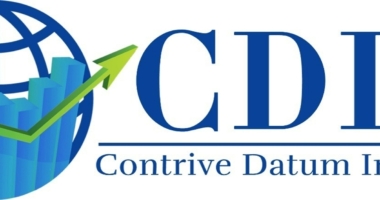Mauritania is one of the least developed countries in the world, with limited access to the internet and other information and communications technology. However, the introduction of Starlink, the satellite internet service created by SpaceX, could revolutionize the country’s digital infrastructure. Starlink could provide access to education and healthcare services, enable students and patients to connect with experts in other countries, increase access to online banking services and payments, and have a positive impact on the country’s economy. The cost of installation and the lack of infrastructure and technology required to access Starlink has been a major obstacle. Despite this, the government of Mauritania is working to address these challenges and establish a regulatory framework for the service. The launch of Starlink has enabled people in rural areas to access the internet, allowing them to access information and resources that were previously unavailable.
Starlink Satellite Internet Service to Revolutionize Mauritania’s Digital Infrastructure
Mauritania is one of the least developed countries globally, with limited access to the internet and other information and communications technology (ICT) services. However, SpaceX’s Starlink, a low-latency, high-speed broadband internet service delivered via a network of satellites in low Earth orbit, could transform the country’s digital infrastructure.
The Potential Impact of Starlink in Mauritania
Currently, only 6.4% of the population in Mauritania has internet access, and even those who do have it, the connection is often slow and unreliable. However, with Starlink’s introduction, Mauritania could finally experience high-speed internet access, enabling the development of new businesses and opportunities.
Starlink could also provide access to online education and healthcare services, making it possible for students and patients in the country to connect with experts from other countries. Moreover, Starlink could enhance access to online banking services and payments, making financial transactions more efficient and secure.
In addition to these benefits, Starlink could significantly impact Mauritania’s economy by providing a reliable connection to the internet. Businesses and entrepreneurs in Mauritania could expand their reach and tap into global markets, creating new opportunities for growth and development.
Challenges of Starlink in Mauritania
Despite the potential benefits of Starlink in Mauritania, the service still faces several challenges, the most significant being its cost, which is estimated to be around $99 per month. This could be too expensive for many Mauritania citizens who live on less than $2 a day.
Moreover, setting up the necessary infrastructure for satellite internet service will require a massive upfront investment, which could be a significant obstacle for a country like Mauritania with limited resources for such projects.
Conclusion
The introduction of Starlink in Mauritania could be a game-changer for the country’s digital infrastructure. Although the service faces challenges such as cost and infrastructure setup, if implemented and funded correctly, it could unlock limitless possibilities for Mauritania’s citizens, such as high-speed internet access, online education and healthcare, and the ability to do business globally.
Starlink Satellite Network Set to Revolutionize Mauritania’s Internet Access
Mauritania is one of the African countries that has not had access to the latest satellite internet technology, Starlink. However, the launch of the Starlink satellite network is expected to change that, providing high-speed, low-latency internet to a significant portion of the country. This new technology is expected to revolutionize the way people in Mauritania access the internet, and it could potentially provide economic and social benefits to the people there.
The launch of the Starlink network will provide people in Mauritania with access to high-speed internet, which is essential for many digital age activities such as education, healthcare, and financial services. This could lead to an improvement in the quality of life for the people in Mauritania.
In addition to improving the quality of life, the Starlink network is expected to bring economic benefits to Mauritania. With access to high-speed internet, businesses and entrepreneurs in Mauritania can tap into global markets, leading to an increase in trade and investment, potentially improving economic growth and development.
Furthermore, the launch of the Starlink network could have social benefits for Mauritania. With access to high-speed internet, people in Mauritania can stay connected with family and friends, leading to increased social cohesion and better social outcomes.
Challenges of Starlink in Mauritania
The lack of infrastructure, inadequate technology, and prohibitively expensive installation costs have hindered Mauritania’s access to Starlink. The country’s telecommunications network is outdated, and the infrastructure to support satellite internet access is lacking. While the hardware required for the Starlink network is available, the installation process is complicated, expensive, and time-consuming.
Conclusion
The launch of the Starlink satellite network in Mauritania is expected to bring both economic and social benefits to the people there. It could potentially lead to improved economic growth and development, better social outcomes, and an overall improvement in the quality of life for the people of Mauritania. However, challenges such as the lack of infrastructure, inadequate technology, and prohibitively expensive installation costs must be addressed to fully realize the benefits of Starlink in Mauritania.
Mauritania Examines Regulatory Framework for Starlink Satellite Broadband Service
Mauritania is the latest country to examine the regulatory framework surrounding SpaceX’s Starlink satellite broadband service. The country’s Ministry of Information and Telecommunications Technology (MIT) is developing a regulatory framework for the service, aiming to provide high-speed internet access to people in rural and remote areas of Mauritania, bridging the digital divide and providing access to greater opportunities.
Challenges in Accessing Starlink in Mauritania
In Mauritania, the cost of installation for Starlink is prohibitively expensive for many people, with the equipment needed for access being expensive, and the installation process being complicated, requiring the services of an experienced technician. This has made it difficult for many of the country’s people to access the service.
Without access to Starlink, many of the country’s people are unable to take advantage of the educational and professional opportunities it provides, as well as the improved quality of life it brings.
Developing a Regulatory Framework for Starlink
The MIT is examining the potential for Starlink to provide high-speed internet access to people in Mauritania, particularly in rural and remote areas, to bridge the digital divide and provide access to greater opportunities. The ministry is looking to ensure that the service meets the necessary standards for quality, reliability, security, and safety, as well as compliance with existing telecoms regulations.
Moreover, the MIT is aiming to ensure that the service meets its own rulings on consumer protection, including pricing and data protection. The ministry has already held discussions with SpaceX and is establishing a framework for the service. It is also looking to set up a dedicated regulatory body to oversee the service to ensure that it meets all necessary standards.
Conclusion
The MIT is hopeful that Starlink will provide much-needed internet access to the people of Mauritania, particularly in rural and remote areas, where the internet is inaccessible. The regulatory framework for Starlink is expected to be in place within the next few months. The MIT’s efforts to bridge the digital divide and provide greater opportunities to the country’s people are encouraging, and the country could potentially see significant economic and social benefits from the introduction of Starlink.
Starlink in Mauritania: Improving Telecommunications Infrastructure
The West African nation of Mauritania has been increasingly relying on satellite-based internet services due to the launch of Starlink, a space-based broadband internet service. The service, which has been rolling out in the country since November 2020, provides high-speed internet access to people in remote areas, allowing them to access information and resources that were previously unavailable. By the end of 2021, Starlink is expected to cover the entire country.
Positive Impact on Telecommunications Infrastructure
The launch of Starlink in Mauritania has had a positive impact on the country’s telecommunications infrastructure, enabling people in rural areas to access the internet for the first time and improving internet speeds and reliability of service in many communities.
Challenges
However, the introduction of Starlink has also posed a number of challenges, such as the service being expensive and not all households being able to afford it. Additionally, the infrastructure needed to operate the service is complex and requires a large amount of investment, which some communities may not have access to.
Future Outlook
Despite the challenges, Starlink has had a positive impact on Mauritania’s telecommunications infrastructure, and with the proper investment and support, it is hoped that it will continue to benefit the country in the years to come.
Don’t miss interesting posts on Famousbio









